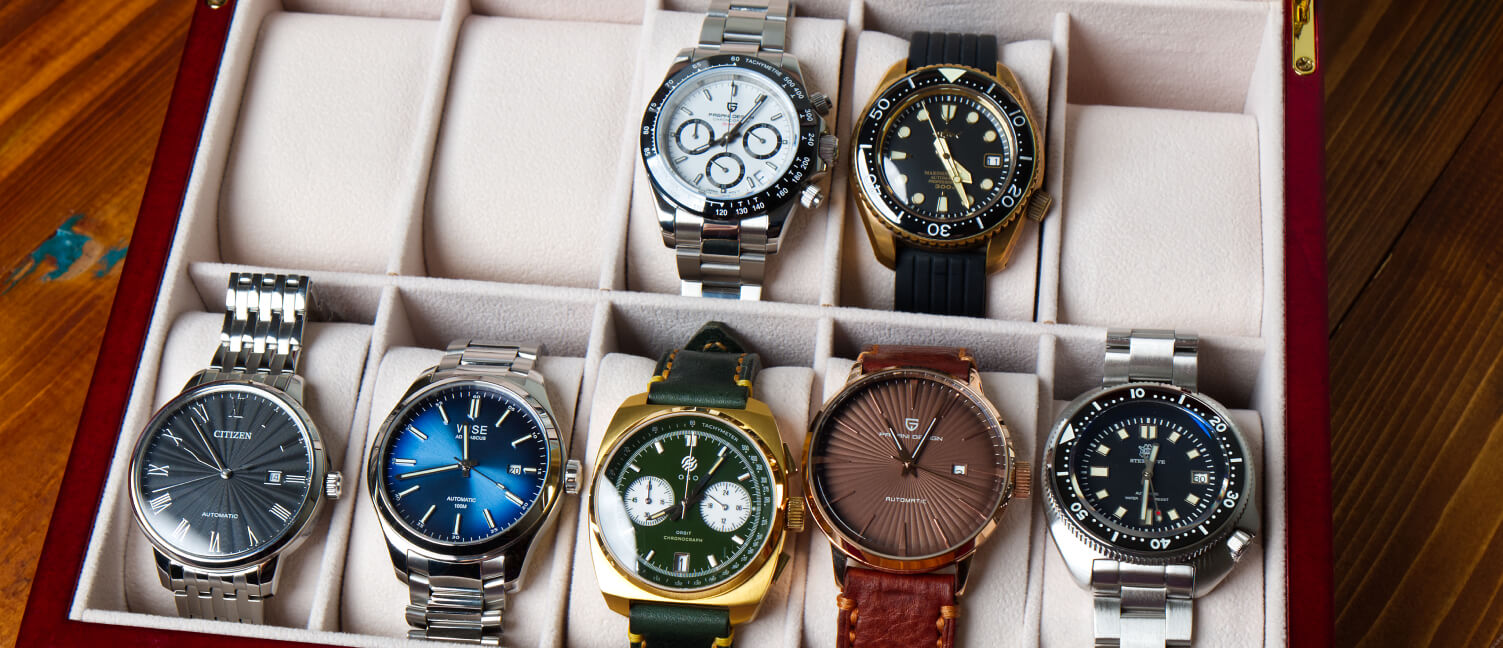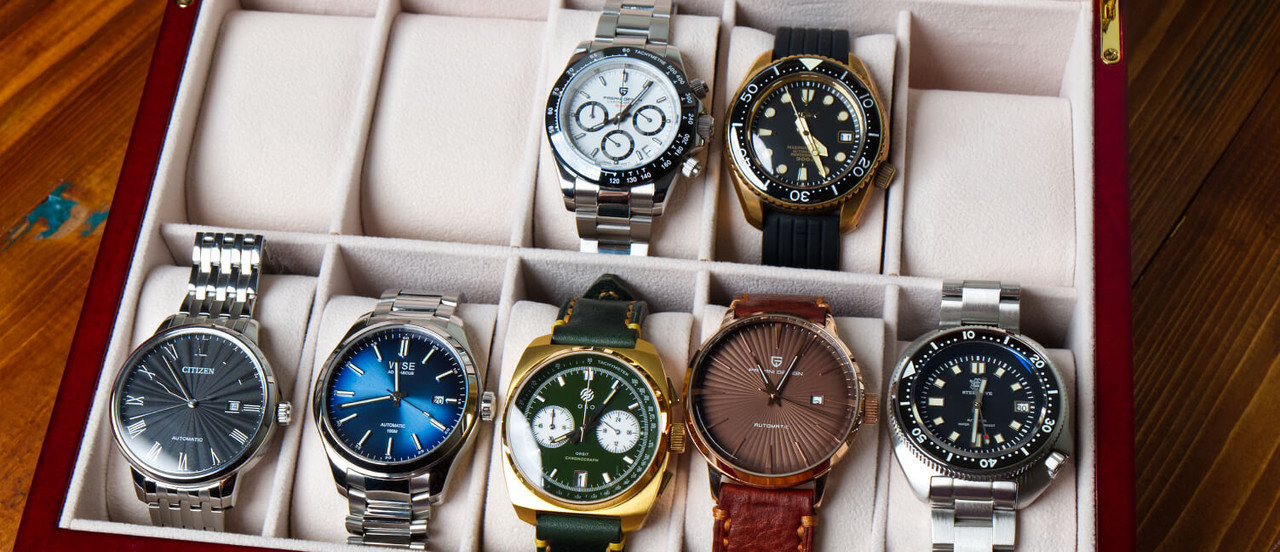Posted by Watch Warehouse on Jan 18, 2024
5 Essential Tips for Evaluating Your Next Watch Purchase
When it comes to investing in a new watch, whether you're a seasoned collector or a first-time buyer, it's important to make an informed decision. Watches are more than just timekeepers; they can be expressions of style, heirlooms, or even investments. To help you navigate the complex world of horology, here are five key factors to consider before making your next watch purchase.

1. Understand the Brand's Reputation
One of the first steps in evaluating a watch is understanding the brand behind it. Research the brand’s history, its place in the watchmaking world, and its reputation for quality and craftsmanship. Some brands are renowned for their precision and innovation, while others are celebrated for their artistic designs or historic significance. A watch from a brand with a storied heritage or a reputation for excellence can be a more meaningful purchase.
2. Consider the Watch Movement
The heart of any watch is its movement, and this can greatly affect both its price and performance. There are generally two types of movements: mechanical (which include automatic) and quartz. Mechanical movements, often appreciated for their craftsmanship and complexity, can be more expensive and require more maintenance, but they offer a level of prestige and tradition. Quartz movements, on the other hand, are known for their accuracy and reliability, often at a lower price point. Decide which type of movement fits your lifestyle and preferences.
3. Assess the Build Quality and Materials
The materials used in a watch not only contribute to its appearance but also to its durability and value. Common materials include stainless steel, titanium, gold, and platinum, each with its own set of advantages. Additionally, consider the quality of the crystal (sapphire is typically the most durable), the strap or bracelet, and water resistance. A well-built watch can withstand daily wear and potentially last generations.
4. Analyze the Watch's Design and Aesthetics
A watch should align with your personal style and the occasions you plan to wear it. Think about the design elements like the dial layout, color, size, and overall aesthetics. A classic, timeless design can be a versatile choice, while a unique or trendy watch might make more of a statement. Also, consider if you need additional features like a chronograph, a calendar function, or world time capabilities.
5. Evaluate the Price and Potential Resale Value
Finally, consider the watch’s price and whether it aligns with your budget and its value proposition. High-end watches can be a significant investment, but they often retain or even increase in value over time, especially limited editions or models from prestigious brands. However, there are also many excellent mid-range and budget options that offer quality and style without breaking the bank.
Conclusion
Purchasing a watch is a personal journey that combines practical considerations with emotional ones. By taking the time to research and reflect on these five key aspects, you can make a more informed decision, ensuring your next watch is not only an exquisite timepiece but also a worthy addition to your collection. Remember, the best watch is one that resonates with you personally, fitting seamlessly into your lifestyle and reflecting your individual taste and style.
